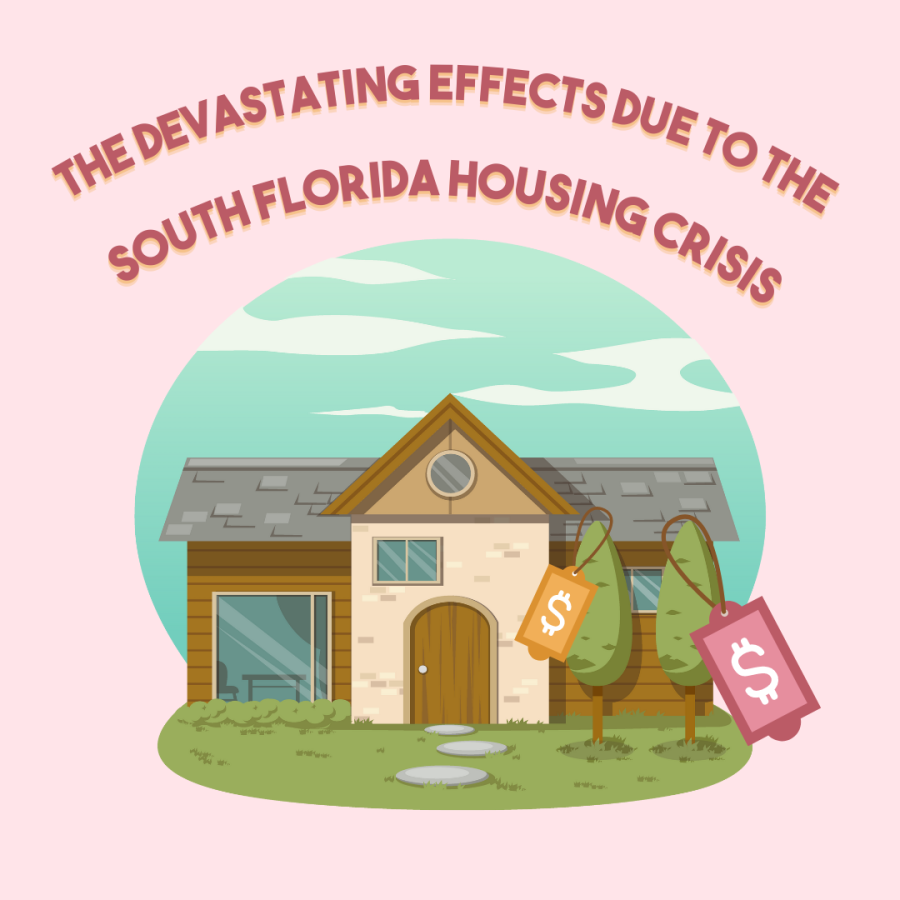The Devastating Effects Due to the South Florida Housing Crisis
March 29, 2022
With home values skyrocketing, the affordability of South Florida homes has hit an all-time low. According to University of Florida data, around 122,000 Florida renters in Miami-Dade County who earn $26,000 or less cannot access affordable housing. With many Florida residents still jobless due to the COVID-19 pandemic, this surge in prices is extremely problematic. To pay for housing, people would need to spend over half their yearly savings. Low-income families may need to sacrifice necessary items, like food and healthcare to ensure they are not evicted. The percentage of low-income renters who also struggle with severe cost burden in Florida reached 79%, according to the National Low Income Housing Coalition.
The average monthly cost of renting in Miami in December was around $3,020, and since then, annual prices have increased by 34%. The average monthly rent in December in the Miami-Dade and Broward area was $2,564, according to the Miami Herald. With these statistics, Miami has become the most expensive housing market in the U.S., surpassing even New York City.
Another problem: other than the pricing, the availability of houses in Florida poses an issue. Houses are selling faster than realtors can display the “For Sale” sign, further highlighting the impact of this issue on low-income families.
According to CBS Miami, with the median household income, which is close to $43,000 in Miami, buying a median-priced house – which costs closer to $600,000 – takes this issue to a whole new level. The devastating effects of the housing crisis might involve families losing their homes.
The Miami-Dade Public Housing and Community Services Committee passed a measure introduced by Commissioner Kionne McGhee via a 3-2 vote directing Mayor Daniella Levine Cava’s office to study the housing situation in the county. If prices continue to rise and this situation is not resolved, then low-income families risk losing the only home they may have ever known.












